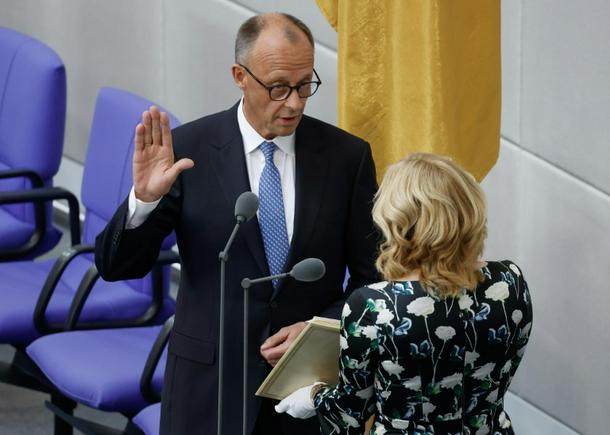
German Chancellor Friedrich Merz takes the oath of office in the lower house of parliament
Berlin (AFP) - Germany’s conservative leader Friedrich Merz was due to travel to Paris and Warsaw on Wednesday after winning a nail-biting second parliamentary vote to become chancellor following a first-round setback.
Merz, 69, scored an absolute majority of 325 to 289 in the second secret vote in the lower house of parliament to become the new leader of Europe’s biggest economy.
But his win was bittersweet after the initial defeat pointed to rumblings of discontent within his coalition.
Merz takes over at the helm of a coalition between his CDU/CSU alliance and the centre-left Social Democrats (SPD) of outgoing chancellor Olaf Scholz.
President Frank-Walter Steinmeier appointed Merz as post-war Germany’s 10th chancellor.
“I accept this responsibility with humility but also with determination and confidence,” Merz later said.
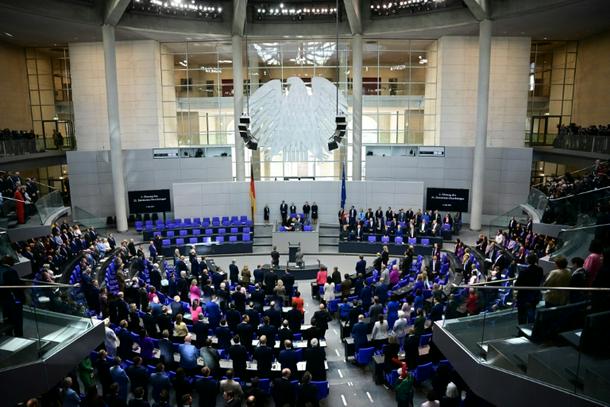
The Bundestag has 630 members of parliament
“It is good that Germany now has a federal government with a parliamentary majority again,” he added, pledging his centrist coalition would be able to tackle national concerns, from the economy to immigration.
In an interview with news channel NTV, Merz also vowed to be a “very European” leader, with the continent’s other countries hopeful Germany will take on a greater international role.
On his first full day in office, the new chancellor will head to France and then Poland, seeking to boost ties with European neighbours who have sought to present a united front as US President Donald Trump upends long-standing security and diplomatic ties, and in the face of a hostile Russia.
Germany has for the most part been on the sidelines since the collapse in November of former chancellor Scholz’s government, with politics all but paralysed as the country awaited a new leader.
Asked on Tuesday how Germany could seek to influence talks on a possible peace deal in the Ukraine war, Merz said there was a “proven format” of Berlin working with France and Britain.
“Germany has been quite reticent in recent months due to the transition from one government to another,” Merz told public broadcaster ZDF, before adding that he planned to “consult intensively” with London and Paris from now.
- US ‘stay out’ -
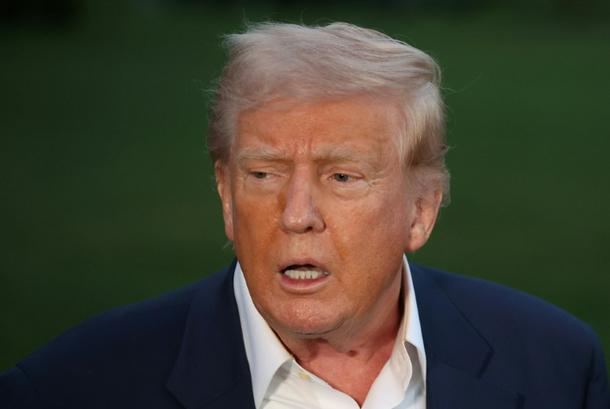
President Donald Trump has upended US relations with Europe
The new chancellor has promised to revive Germany’s ailing economy and strengthen Berlin’s role in Europe as it responds to the rapid changes since Trump returned to power in January.
The US president has heaped pressure on European allies, saying they spend too little on NATO defence capabilities, and imposing tariffs that are especially painful to export power Germany.
And during the German campaign, Trump’s allies, including top adviser and tech billionaire Elon Musk, and Vice President JD Vance, offered strong backing to the far-right, anti-immigration Alternative for Germany (AfD).
After Germany’s domestic spy agency designated the AfD a “right-wing extremist” party last week, US Secretary of State Marco Rubio called the move “tyranny in disguise” and said “Germany should reverse course”.
Merz on Tuesday condemned recent “absurd observations” from the United States, without specifying particular statements, and said he “would like to encourage the American government… to largely stay out of” German domestic politics.
A politician with long-standing US ties, Merz said he had always felt “from America that they can clearly distinguish between extremist parties and parties of the political centre”.
- ‘Power vacuum over’ -
Tuesday’s first secret parliamentary vote was expected to be a formality but turned to disaster for Merz when he fell short by six votes of the absolute majority to seal his job.
Nonetheless, his eventual triumph means that “the six-month power vacuum at the heart of Europe is over”, said analyst Holger Schmieding of Berenberg Bank.
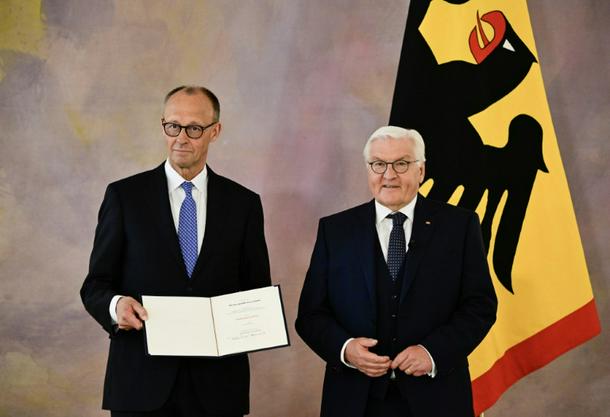
Friedrich Merz, on the left, receives his certificate of appointment as German chancellor from President Frank-Walter Steinmeier
Schmieding said Merz’s initial setback “suggests that he cannot rely on full support from the two parties backing his coalition… That will sow some doubts about his ability to pursue the policy agenda.”
But, “despite today’s temporary upset”, he said, “Merz has a proven ability to recover from temporary setbacks. For example, it had taken him three attempts to become head of his CDU party -– but he still made it in the end.”
The AfD especially cheered the initial vote against Merz, who has vowed to restore stability in Berlin.
He has also pledged to crack down on irregular migration, in part to reduce the appeal of the AfD.
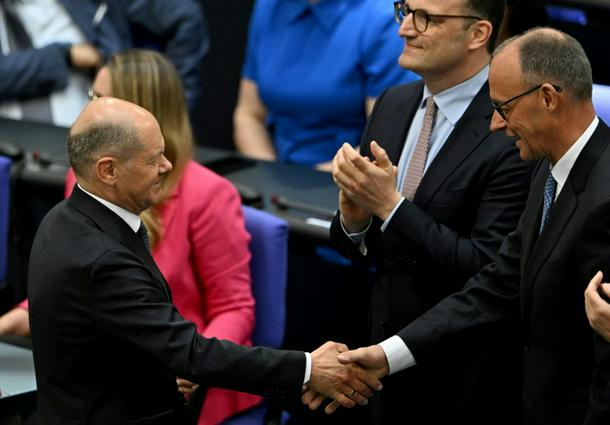
Germany's new Chancellor Friedrich Merz is congratulated by his predecessor Olaf Scholz
On Tuesday, he vowed to “do everything” to “restore people’s trust in the political centre and ensure that they no longer feel it necessary to vote for a party such as the AfD”.
Merz’s bumpy road to victory caps a long ambition to lead Germany that was first foiled decades ago by party rival Angela Merkel, who went on to serve as chancellor for 16 years.